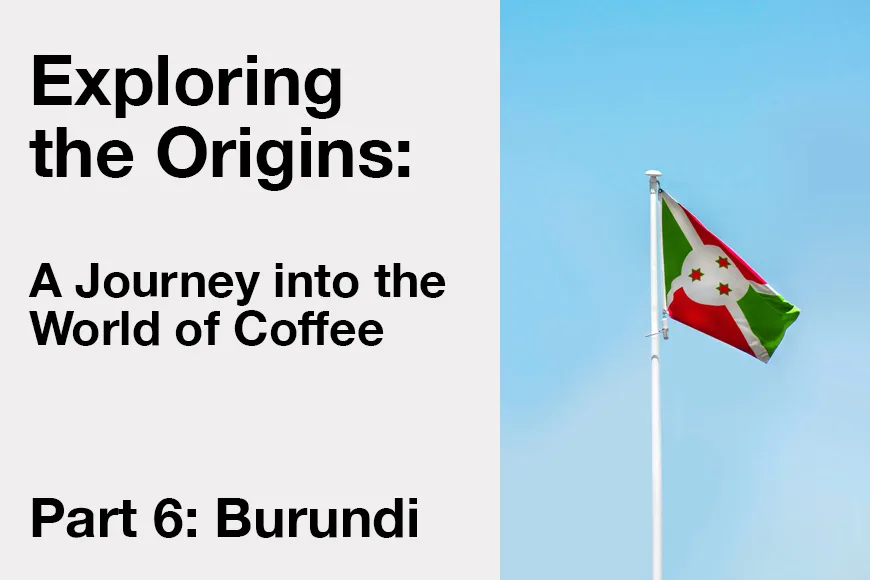Exploring the World of Coffee: Burundi

In the sixth part of our Exploring the Origins series, we venture into the amazing coffee origins of Burundi. Nestled in the heart of East Africa, Burundi has gained recognition for its unique coffee production. Join us as we uncover the fascinating story and flavours of Burundian coffee.
Burundi’s Coffee Heritage
Burundi’s Coffee Heritage
Burundi has a rich coffee heritage deeply rooted in its culture and history. Coffee has played a vital role in the country’s economy, providing livelihoods for many farmers. Burundi’s commitment to quality and sustainable farming practices has placed its coffee on the world stage, captivating coffee enthusiasts with its exceptional flavours.
Burundian Coffee Growing Regions
Burundi boasts several distinct coffee-growing regions, each contributing to the country’s diverse coffee offerings:
Kayanza Situated in northern Burundi, the Kayanza region is known for its high-altitude coffee farms. The coffee from this region is characterised by its bright acidity, floral aromas, and flavour notes of red fruits, black tea and dark chocolate.
Ngozi Located in the northwest, the Ngozi region is renowned for its specialty coffee production. The beans grown here showcase a balanced acidity, medium body, and flavours that range from citrus and stone fruits to caramel and spices.
Muyinga Found in the northeast, the Muyinga region is known for its diverse microclimates. The coffee beans from Muyinga offer a lively acidity, a full body, and flavour profiles that may include berry notes, floral undertones and hints of cocoa.
Flavour Profiles and Processing Methods
Burundian coffee is cherished for its unique flavour profiles, influenced by factors such as altitude, soil composition and meticulous processing methods. Arabica beans from Burundi typically exhibit a bright to medium acidity, a medium body, and flavours that range from fruity and floral to caramel and spice. The most common processing methods used in Burundi include washed (wet) processing, which emphasises the coffee’s clarity and acidity, and natural (dry) processing, which adds sweetness and enhances fruitiness.
Sustainability and Community Development
Burundi places great importance on sustainable coffee farming practices and community development. Many coffee farmers in Burundi adhere to organic farming methods and engage in initiatives promoting environmental preservation and fair trade. The coffee industry plays a significant role in empowering local communities, providing economic opportunities and improving social well-being.
Burundi’s Coffee Culture and Traditions
Coffee holds a special place in Burundi’s culture and social fabric. Traditional coffee ceremonies, known as “kweto,” are a cherished practice that celebrates hospitality and community. During these ceremonies, coffee is roasted, brewed, and served in a ceremonial manner, often accompanied by music, dance and lively conversations.
Terbodore offers a very special single origin from Burundi , Rugembe Hill.
Burundi’s coffee industry offers a captivating glimpse into the country’s rich cultural heritage and commitment to producing exceptional coffee. From its diverse flavour profiles to its sustainable farming practices and vibrant coffee traditions, Burundian coffee continues to enchant coffee enthusiasts worldwide. Join us in the next installment of our series as we continue our journey through the remarkable origins of this beloved beverage.